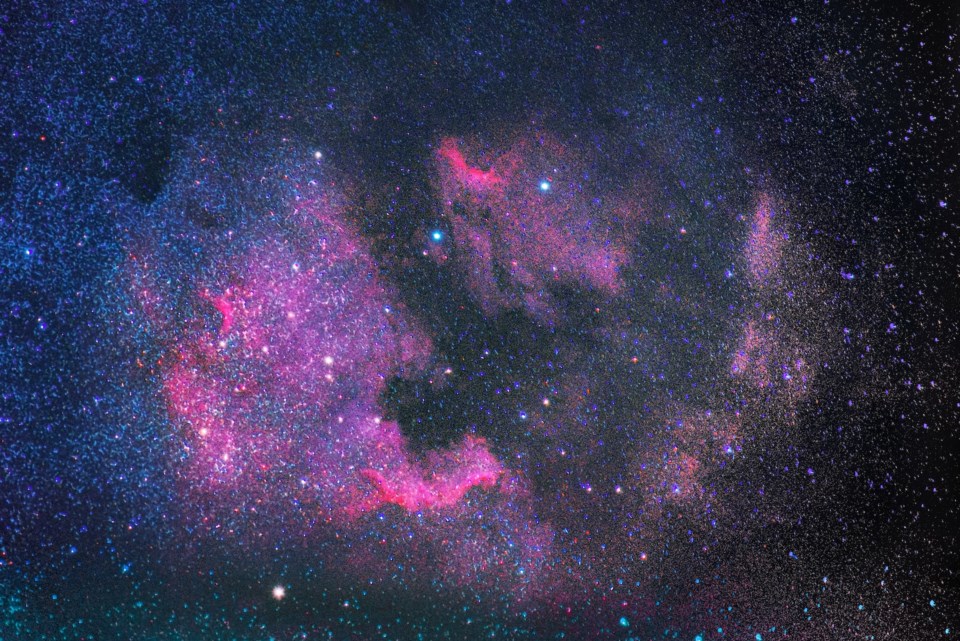Since 2019, Research Co. and Glacier Media have studied the relationship of Canadians with astrology.
At the time, there were plenty of articles about everything that millennials in North America were “killing.” Some of the purported victims of the continent’s youngest adults included pet food, dining out, dairy and mayonnaise.
Studying the movements and relative positions of celestial objects to make observations about human affairs and terrestrial events was one concept that thrived due to the interest of millennials in Canada.
When we first asked questions about astrology in 2019, 36 per cent of Canadians told us they “definitely” or “probably” believed in it – a proportion that rose to 49 per cent among those aged 18 to 34.
In late 2021, the proportion of astrology believers across the country fell to 32 per cent, as older Canadians became even more skeptical than before. Among those aged 18 to 34, belief in astrology grew to 55 per cent.
This year, 35 per cent of Canadians told us they believe in astrology, along with 45 per cent of those aged 18 to 34. We continue to see nine per cent of Canadians expressing a “strong belief” in the concept. The level of “strong disbelief” dropped from 39 per cent in 2021 to 32 per cent this year.
More than two in five residents of Manitoba and Saskatchewan (43 per cent) and Alberta (42 per cent) believe in astrology. The proportions are lower in Ontario (38 per cent), Atlantic Canada (35 per cent), Quebec (32 per cent) and British Columbia (27 per cent).
Canada’s older adults are not keen on astrology and have not been for the past few years. This may be directly connected to the fact that, in stark contrast with what transpired in other countries, Canada never had a de facto national astrologer in the latter part of the 20th century.
Margaret Lake – known as Mystic Meg – was a multimedia fixture in the 1980s and 1990s in Great Britain. At the same time, it was difficult to pick up an American newspaper and not be exposed to Jeane Dixon’s syndicated column. The musings of Walter Mercado were featured on newscasts (yes, newscasts) in Spanish-speaking countries for more than four decades.
Those who did not grow up with astrology as an integral part of entertainment are less likely to look at the concept as factual. Only 25 per cent of Canadians aged 55 and over believe in astrology, along with to 38 per cent of those aged 35 to 54.
Astrology is no longer confined to print. Websites and applications now provide personalized analysis, particularly on aspects such as romantic compatibility. Still, believing in something does not mean that a person will feverishly follow everything about it. This year, fewer than one in five Canadians (17 per cent, up three points) say they currently pay attention to astrology, while 28 per cent (unchanged) used to, but do not anymore.
A majority of Canadians (55 per cent, down three points) claim to have never paid attention to astrology, including 60 per cent of men, 63 per cent of Canadians aged 55 and over, 63 per cent of Conservative Party voters in the 2021 federal election and 66 per cent of those in the highest income bracket.
There are some developments on the other three concepts that we track. Just under a third of Canadians believe in clairvoyance, or gaining information about an object, person, location, or physical event through extrasensory perception (31 per cent, up three points), and mediumship, or mediating communication between living human beings and spirits of dead people (32 per cent, up six points).
The biggest fluctuation observed on the survey is for haunted houses. Almost two in five Canadians (39 per cent, up seven points) believe that buildings can be inhabited by the spirits of dead people.
There is a significant gender gap, with 44 per cent of Canadian women saying they believe in haunted houses, compared to 33 per cent of Canadian men. On this concept, belief among Canadians aged 35 to 54 and aged 18 to 34 is similar (43 per cent and 40 per cent, respectively), with lower numbers among those aged 55 and over (33 per cent).
Some people assumed that the COVID-19 pandemic would push people closer to concepts like astrology. The views reported by Canadians suggest the opposite. The 2023 numbers look similar to those from 2019. Even as the nationwide results are boosted by the 45 per cent of Canadians aged 18 to 34 who believe in astrology, only 24 per cent of them are actually paying attention to it.
It is too early to tell whether this generation will simply forget about this concept as life goes on, or find a way to incorporate it into the next facets of their lives.
Mario Canseco is president of Research Co.
Results are based on an online study conducted from June 9-11, 2023, among 1,000 adults in Canada. The data has been statistically weighted according to Canadian census figures for age, gender and region. The margin of error – which measures sample variability – is plus or minus 3.1 percentage points, 19 times out of 20.



